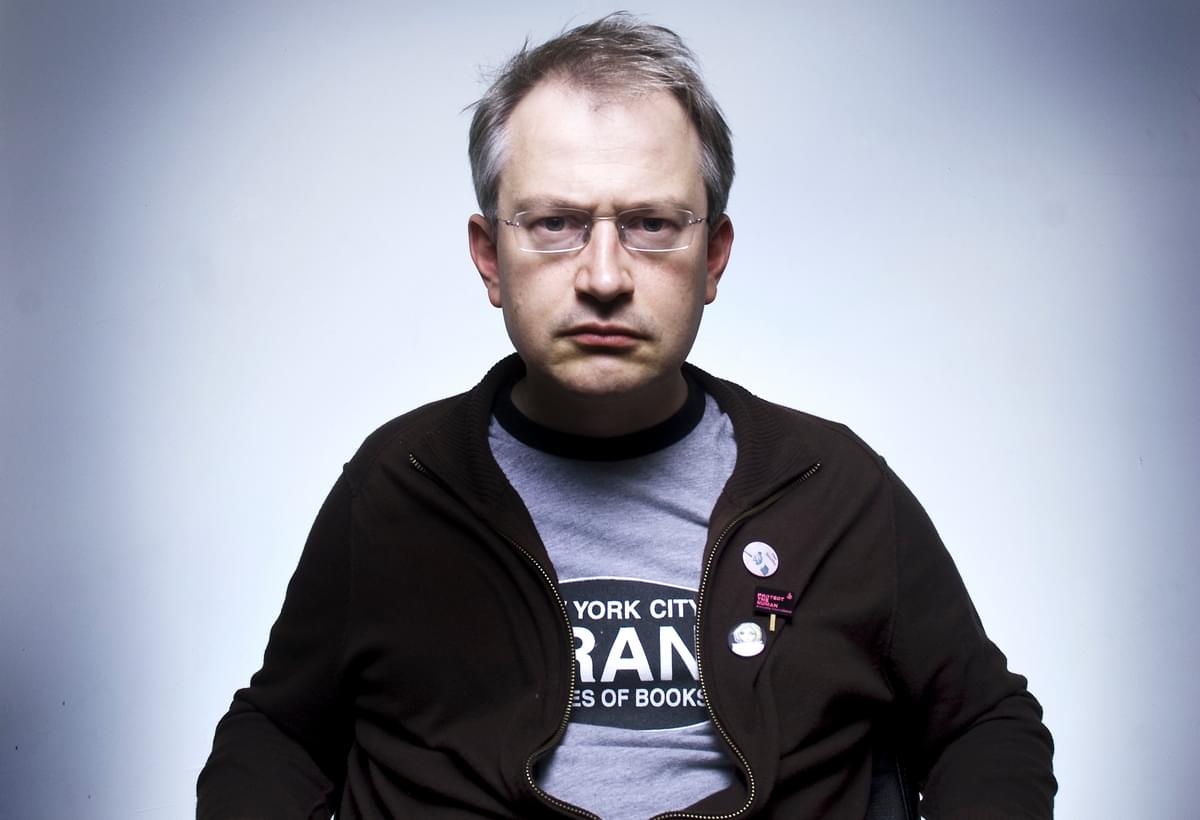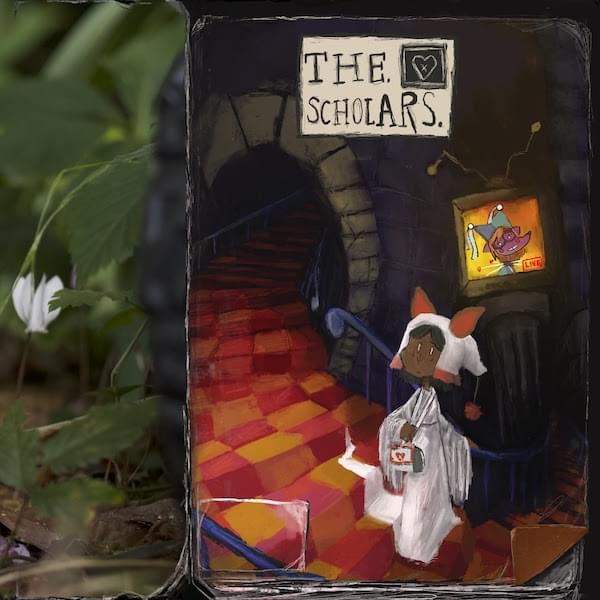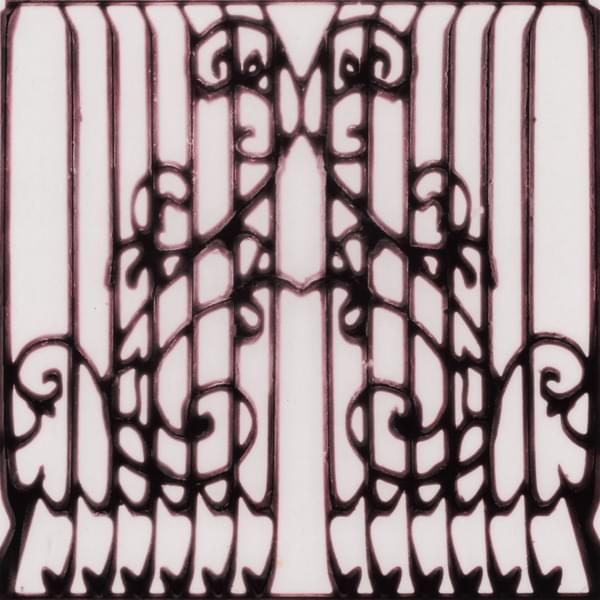
Coming Up For Air
After almost a quarter of a century performing stand-up, Robin Ince gave it up. He reflects to Oobah Butler about the journey and what happened next.
There are two types of working comedians that exist today, I hear, as part of Britain’s scene. You have the kind whose face is usually seen balanced precariously between limp shoulders on a panel show or crabbing over to sell out shows at the Theatre Royal in Norwich and on the other hand the archetypal up-and-comer who coexists between part-time work and £20 slots at the Walrus on a Wednesday night.
We’re left with some sort of imbalanced system with a moderately-sized elite and a huge, sprawling proletariat. The area between the two, the middle class of British comedy as it were, is on the cusp of extinction. It merely exists today as one or two comedians who can “just about pay for a little terraced house that’ll fit a book collection” by working around the country, enjoying loyal audiences steadily.
One of this threatened creed, comic Richard Herring, states when speaking to Robin Ince at the Leicester Square Theatre that they both have become unlikely exceptions to this two-tiered system. “It’s quite a rare position, because most comedians can’t tour because they’re not well known enough to sell any tickets on their own name. And most comedians who do tour are so well known that they’ll get thousands of people showing up. We’re in this middle bit where we might get 50 or 500.”
“You’re allowed to be mad as an artist, but you still have the other sixteen hours of the day."
And it seemed like Ince, a lifelong follower of alternative Americana stalwarts Giant Sand, was on the same path as the group’s ornate frontman Howe Gelb. Operating on the fringes of obscurity and lending himself for intermittent cameos in mainstream media before regressing to a habitual lifestyle. Nine months ago however, Ince somewhat surprised his devoted audience, scuppering this trajectory by penning a blog post under the title of Losing My Religion – On Why I Am Giving Up Stand-up. From out of nowhere, he would be giving up comedy.
After 24 years working, 1,200 words printed in Georgia on a webpage was never going to be enough, was it? It’s a strange thing, for a successful man in his mid-forties to decide that he wants to give up “the only thing [he] ever wanted to do “. But, as you’d expect, it’s for a cavalcade of complicated reasons. Most significantly, Ince makes it clear to me in this pub on Goodge Street that he has reached a point where his anxieties are obstructing him from enjoying the work.
“The reason that I’m giving up stand up is because of the self-doubt. Even when I’d had a great gig; travelling the world, it’s going alright; the moment I get back in the hotel, it changes. Then when I’m watching Bridget Christie or Dan Kitson - the geniuses of the circuit - I’m thinking ‘I’m not good enough.’”
He begins unravelling his concerns, “When you realise that you don’t have the ability to create really, really great stuff, you kind of go ‘is it still good enough?’ That’s where the imposter syndrome comes in. Even though I’ll soon be forgotten, is it still worth doing? In a good mood, you can say, ‘its fine’. Other times, you think ‘that’s a load of funny voices, jumping up and down, and things I’ve read in a book all together.’”
A concern about his material becoming too generic is a route of anxiety and – if we can split the two – a source of comedy on stage and in conversation with Ince. He grew up listening to the Fall and in awe of Rick Mayall, but the two bound together for the first time in alternative subterranean London rooms in the late-eighties’. “The broadness of what I had access to was ridiculous.” His love affair with the counterculture started here and went with him through to starting up in the nineties, where he started to learn of that tussle between art and commerce. “I saw that with acts on the circuit who thought ‘I’ll be able to play the mainstream clubs and the shitty hens and stags, then when I go to the smaller clubs I’ll be able to do what I want, and a lot of them found the other one had gone.” He soon deduced, “If you want to be a stand up, it has to be the one thing you have to do. If you really want to create something, it has to be there wasn’t any other choice.”
"The reason that I’m giving up stand up is because of the self-doubt."
Philosophically fine, but living a decade of often gigging three times a day, seven nights a week, “surviving on carrots and Bulgarian wine”, one would expect their doggedness to be tested. And Ince’s ‘Icarus moment’ came when he made the decision to turn down another arena tour supporting friend Ricky Gervais. “When I first supported him, I didn’t realise how famous [Ricky] was – we are still friends now, we haven’t fallen out - then I realised, when they asked me to do it again, I’d just be that bloke who supports the international touring comedians. I said, ‘thanks for asking, I’m not going to do it’, but they kept on coming back and back with more money. It got to the point of ridiculousness.”
Then came a defining conclusion for the comic. “The reason I thought, ‘I’m alright’ is – even though this is going to be a lot more than I’ve earned this year – artistically it won’t be the right thing.
“I felt that, as long as you can survive and get enough people coming to your gigs so that you still create the art you want, I’d be fine. It’s the moment you realise you don’t want to be a millionaire or you don’t want to play the O2, that was a big change I had. I turned down some adverts, both quite a large amount of money; and there’s an incredible moment when you say ‘wow, I’ve got enough’. The moment that you go to the supermarket and you don’t have to say ‘how much is that?’ From that point onwards, I have a lot of freedom.”
His comedy later caught up with his progressed state of mind “when I was up in Edinburgh and I’d had a particularly dreadful year. Most people didn’t get the show and were weird about it, but those who did love it, loved it. And in the end it was the thing that changed everything for me.” An image to capture that moment? “I ended up punching a melon that represented Vernon Kay’s head whilst singing Mustang Sally: it was the show that got things going. Then I started considering some of the other alternative stuff I’d seen at [the Edinburgh Festival] that year that didn’t really work on the club scene. It needed a place to exist and I get annoyed when people say ‘why doesn’t this happen?’ without doing anything. If a thing you want doesn’t exist, fucking make it. Don’t whine. So a few months later I started the Book Club.”
And this brain fart turned into a showcase of alternative comedy that would go on to receive British Comedy Awards and sell out on tour. This vote of confidence enabled Ince the to grow into the multi-faceted character he is today. Whether it’s presenting BBC Radio Four’s The Infinite Monkey Cage with Brian Cox, joining in with Steve Lamacq weekly on 6Music’s for Roundtable in exchange for “not very much money and the access to a few selections from their catalogue”, hosting a number of podcasts with Josie Long or crafting his own satirically secular pieces pitted against a spaghetti jazz band, Ince began modelling those subterranean rooms he witnessed as a young man with the soft mud of his own career.
Now at his undoubted peak of acclaim in the counterculture, I question whether this may have the best time to throw in the towel with stand-up. “It’s a really poorly timed decision. I’ve never had more people asking me about things, but maybe that’s why it’s a good idea to do it? I’ve had a really interesting year in terms of being able to go around and create some things.”
Interestingly enough, Ince almost seems constrained by comedy at the moment. This isn’t the move of a man worn out or shy, but the motivations of a person genuinely creating on their terms. Asking where his focus is now, he lights up, “I’m going to write fifty short stories by January, at the start of each day I’m going to start writing and end up with 2,000 words. I didn’t start thinking this before I ended stand-up, it happened as a reaction. But now, every idea that I have is not to do with stand up, it’s to do with a story. I’ve just replaced one obsession with another, it’s almost entirely erased. “
Alongside “trying to organise a tour of little independent cinemas doing talks about horror films with comedians”, more additions of his hilarious, shambolic Vitriola Music Podcast with comedian Michael Legge and the crowd-funded Shambles with Josie Long, Ince has been negotiating Monkey Cage tours with Brian Cox. This is providing him with moments a world away from Alnwick on a Thursday night. “One of the nights we’re at Eric Idle’s house in LA and we’re having dinner with Steve Martin and Jeff Lynne. How fucking mad is that? It was one of those moments when you do go ‘this is bloody brilliant, this’. But soon I’m thinking, ‘don’t piss off Steve Martin! He re-wrote the language of stand-up in the seventies’”.
This jolt brings me to a moment of Ince’s set at End of the Road from a few months back, where he spoke of being at the seaside and fighting knee-jerk compulsions to throw his infant son off a cliff. Why? Because, it’s the exact thing he shouldn’t do. And it is suppressing those guarded facets that become one’s OCD, according to Ince, but his interest really lies in the crowd’s reaction to the segment. You don’t get many giggling and giving an ‘I get you’ exclamation when they hear the beach story however, when Ince comes off stage, a long line forms around the comedian. Within ten minutes he can expect to be hearing details of people constantly subduing the compulsion to murder their loved ones or scream their deepest secrets. Understanding of both a person’s reluctance to open up about this and Ince’s openness, I ask whether there’s anything he doesn’t discuss on stage? “The only limit I have, is how much I’ll talk about my relationship, because my wife is not in this, it’s me”.
That set at End of the Road was somewhat of an anomaly for Ince and, in those rare moments he does perform at the moment, he feels he “can do anything because I’m not really worried about being judged, but I’m not being particularly experimental or interesting either. Normally, whatever I do, I’m worried about it not being interesting enough or new or I don’t like repeating myself. Whereas at the moment, I just think it’s fine.” And has he ever been at peace or, dare I say it, happy with his material? “There was a gig I did at Hammersmith once and it was one of the rare occasions where I had a flashback the next day and thought ‘that’s good’” Picking just one of the thousands of shows at his behest, he soon extinguishes this with the black dog chasing again, “The majority of time I’m not happy. Recently I found some videos of what I did in the nineties, and I destroyed them all. I don’t care about a fucking archive, I don’t want them to exist!”
“The only limit I have, is how much I’ll talk about my relationship, because my wife is not in this, it’s me”
Considering those lovely fans in Cumbria who baked him a “boss-eyed cake of Sheila Hancock to punish her being overly cruel to me when I appeared on Just A Minute, the fact he’s first name terms with a good slice of his audience or that man who told him after a show that, despite loving the set, he “didn’t enjoy the defamatory parts about Nick Griffin as he himself is the press officer for the West Country BNP”, in those intimate understandings with his audience, Ince can enjoy the fruits of his labour. Has having this idiosyncratic closeness informed his work? “When I was out in Australia, I met a fascinating ex-Principal of a school and she was telling me about her daughter who killed herself, and she looked at me and she said ‘you comics have to do more stuff about suicide, because until it can become part of a broader conversation, then it’s still a secret hidden thing.'
"So much of art now is about being accessible, but the most significant work is when you don’t know how people are going to take the joke.
“You’re allowed to be mad as an artist, but you still have the other sixteen hours of the day. Most comics and artists can do the standing up and showing off, but the difficult bit is the other 22 hours. Now I just have to find a way to blend into society.”
Six months into his so-called ‘normal life’ after giving up stand up, has losing the “trepanning effect” and release of stand-up had a negative impact on his mental state? “No, I thought it might do. I think it’ll have an impact on my friends and family who have to deal with it, but I’ve found other things already. The replacement of being able to take my son to school every day and everything has been great. At the moment, I sit down for three hours every morning and write. It’s still coming out and I’m not sure I need an audience at the moment.”
That sounds like, dare we say it, contentment? Perhaps stand-up was the root of his anxieties after all then; the way to chase the dragon of misery, as it were? “Maybe. Maybe the requirement of being mad on stage was what was feeding my unhappiness the whole time.” Ince clearly not fazed by the lure of serenity adds, “But what excites me is that, I know I’ll eventually go back, if I keep away long enough like two years’ time or whatever. It should explode into something chaotic. Instead of just being told ‘not good enough’ by a publisher it’s back to ‘you’re staring, I need to make noise.’”
Get the Best Fit take on the week in music direct to your inbox every Friday

Car Seat Headrest
The Scholars

Model/Actriz
Pirouette

Samantha Crain
Gumshoe





